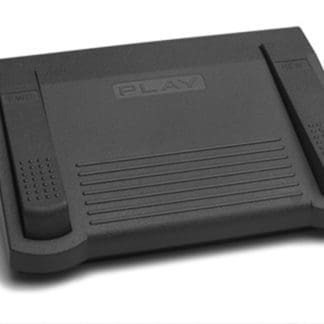Warning: Some readers may find the following article disturbing, however, it does provide a real world example that the medical transcription field is changing and we must change with it in order to maintain our livelihoods. The keys to the kingdom are education and flexibility.
Hugh Via, TranscriptionGear.Com
Article by Molly Merrill, Associate Editor Healthcare IT News
Burlington, VT – Medical transcription technology is to blame for the loss of 30 jobs at the largest hospital in Vermont.
Fletcher Allen Health Care, a non-profit, academic medical center in Burlington, Vt., announced on Tuesday that it has eliminated 30 medical transcription jobs at the hospital.
Twenty-three full- and part-time employees will lose their medical transcription positions, effective June 25 as a result of increased efficiencies gained by new technology, said officials. Three positions were vacated through attrition and four per diem positions were eliminated as well.
In 2004 Fletcher Allen Health Care teamed up with Vermont Healthcare and Information Technology Center (HITEC) to train medical transcriptionists in Vermont. The first Vermont HITEC training session was conducted over an eight-month period in an intensive training program for 20 medical transcriptionists. Successful graduates were employed by the hospital. According to WCAX.com, a news source in Vermont, only one of the laid off workers came through that program.
Hospital officials said the eliminated positions are the result of both the new transcription technology and its electronic medical record PRISM (Patient Record and Information Systems Management).
New speech-recognition software, which transcribes lines of dictation that only require editing, was introduced in the fall of 2009; with this new software, the transcription service can produce more lines of dictation in less time with fewer people, said hospital officials.
In addition Fletcher Allen implemented an electronic health record system in June 2009, which allows physicians to enter information directly into the system without dictation; this technology, according to officials, decreased the overall volume of transcription work by 27 percent to date.
“The new PRISM system is a major step forward in patient care,” said John Brumsted, MD, chief quality officer. “The improvements in safety, efficiency and coordination of care will enhance quality and the overall patient experience. This is the future of health care, and I’m proud Fletcher Allen is bringing this leading edge technology to our community,” he said.
The hospital is providing severance packages to affected employees and has reached out to three transcription companies to try to secure employment for qualified candidates.
Hospital officials said fifty-three people will continue to provide editing services and a small amount of traditional transcription services for the organization, which currently produces approximately 19 million lines of transcription per year.



